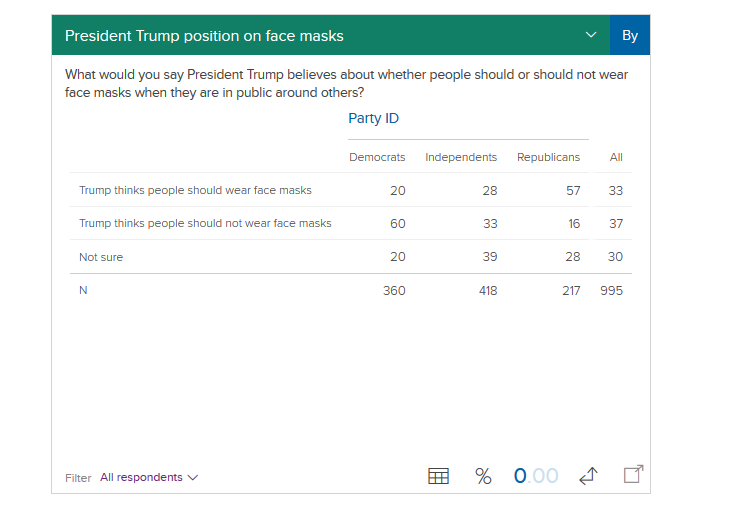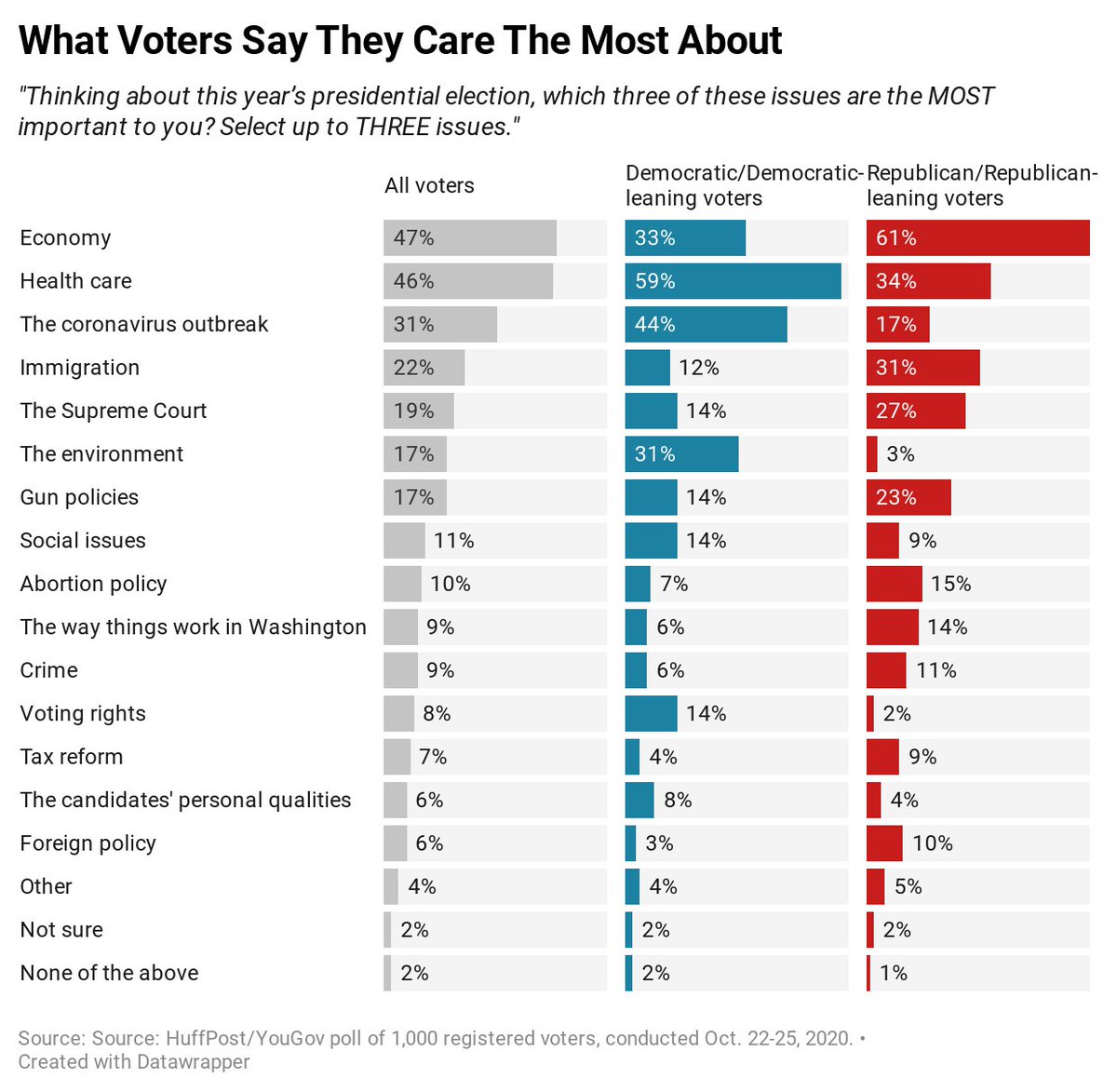
Dem voters say, 43% to 33%, Biden should compromise to work with GOP. GOP voters say, 54% to 25%, that Republicans in Washington should stick to their positions.
huffpost.com/entry/bipartis…
huffpost.com/entry/bipartis…
That same asymmetry shows up in voters' expectations: Dem voters think that Biden will work with GOP (but not vice versa), while GOP voters don't expect either side to work together.
huffpost.com/entry/bipartis…
huffpost.com/entry/bipartis…
Sort of an interesting crosstab: how likely Dem voters think it is that GOP will work with Biden vs. whether they think Biden should try to work with GOP. Even those who think he should compromise are mostly bearish it will be reciprocated. 

Worth noting of course, that this is a broad hypothetical -- opinions will shake out differently on any particular issue that arises. What this covers is more broad attitudinal/signalling choices.
• • •
Missing some Tweet in this thread? You can try to
force a refresh








